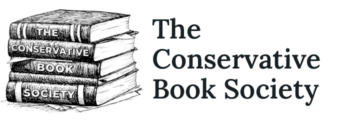Martha. Dolley. Abigail.
These are the names of the women most commonly thought of when speaking of the founding mothers of the country. And while they certainly deserve the honor and praise bestowed upon them, one mother is often forgotten about by history. That is the mother of the country’s first President: Mary Ball Washington.
Who Was Mary Ball Washington?
While countless books have been written about Mary’s son, George Washington, Martha Saxton’s “The Widow Washington” is one of the first to delve into Mary’s personal life. Saxton’s biography has opened the door to a new perspective where she reveals Mary as a caring mother who raised a man worthy of leading our country.
Despite only a handful of documents mentioning Mary specifically, Saxton used plantation and estate records to artfully reconstruct Mary’s world and bring her story to light. Most historians and authors briefly mention Mary, dismissing her as a pious and nagging woman. Instead of accepting this as a statement of fact, Saxton seeks to explain why and how Mary earned this reputation. While Mary certainly was a religious woman, Saxton explains that Mary had lost her parents by age 13. Seeking solace during that troubling time, Mary turned to God and constantly read devotionals that heavily reinforced the importance of piety and prayer.
Raising George Washington
At the age of 22, Mary became the second wife of Augustine Washington, and together they had five children, the oldest of them being George. Records suggest that Mary excelled in managing the household, and we can assume that she enjoyed a prominent lifestyle associated with being a plantation mistress. However, the death of her husband quickly deprived her of any security she may have enjoyed. Recognizing that her children would not receive the full benefits of Augustine’s estate, Mary began to fervently shape her eldest son into a distinguished young man who would be welcomed into any society.
While she did everything to ensure that he was prepared for life in high society, she also stressed the importance of God. She treated George as a “religious being” from an early age, and as a result, “he adopted much of her philosophy as his own.” This is evident through George Washington’s many letters and speeches he gave across the colonies. In one letter to Benedict Arnold in 1775, George wrote, “While we are contending for our liberty, we should be very cautious not to violate the rights of conscience in others, ever considering that God alone is the judge of the hearts of men.” While many things have changed since 1775, this sentiment still rings true, perhaps now more than ever.
Revising Mary Ball Washington’s Image
Mary’s determination to secure her family’s place in society while standing firm in her religious convictions was met with great success, considering all her children married well within colonial high society. As she grew older, managing the estate grew more and more burdensome. She wrote many letters to George seeking financial assistance, which aided her reputation amongst historians as a nagging woman. However, Saxton explains that Mary had little to no control over her finances, and thus, she had no choice but to write to George. Yet again, Saxton dissuades readers from gleaming that Mary was a nagging and thoughtless woman and reinforces the idea that Mary was conscious of her plight in life and did what she could to ensure her children’s and her estate’s success.
Mothers Matter
While the efforts of Martha Washington, Dolley Madison, and Abigail Adams are certainly more celebrated in history, Saxton’s book reminds us that mothers are unsung heroes, raising the next generation and preparing them for the challenges ahead. Our society has been pushing women into believing that motherhood is not an admirable pursuit and that women should strive to do more with their lives. However, being a mother and raising children to be loyal, kind, and loving is one of the most challenging undertakings in the world today. The Widow Washington tells the story of the forgotten founding mother and serves as a reminder that women can also change history from within the home.
“The Widow Washington” was reviewed by Alexandria Tony, a lawyer and contributor to the Conservative Books Society. For related topics, read our review of 1776 by David McCullough. You can also follow us on YouTube and Instagram for more reviews.
You can purchase the book on our Amazon page.





